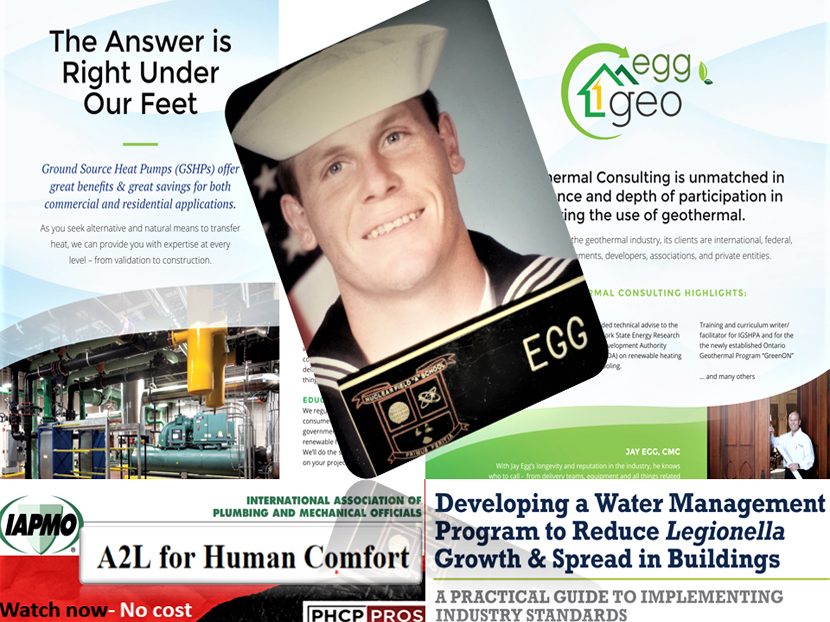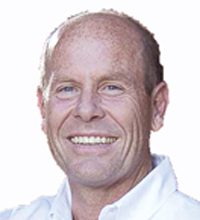The Manual of Best Practice for an MEP Career: Good Balance
Through code changes and these challenging times, it's wonderful to see that we can adapt our skillsets for the industry’s needs.

The most constant thing I've learned in my 35 years in business is to be ready for change, to recognize when a door is closing and another is opening. Keep your options open.
It seemed obvious when I got out of the U.S. Navy in 1988 that a career in air conditioning would be a sure thing in Florida. After working a short couple of years as a serviceman, I started Mechanical Services Co., founded on sound principles of heat transfer and fluid flow, with a focus on geothermal exchange technologies.
Over the next 20 years, as my business continued to grow, I tried a lot of new things; many were successful and many were not. I learned a lot from those that were not successful.
The Obama administration’s stimulus package of 2009 opened up tremendous opportunities that furthered our efforts, including accepting the chance to write textbooks, developing curriculum, seminars and CEU presentations, and entry into the wonderful world of writing technical articles and columns for various publishers.
This whole turn of events ended up being quite successful. We began to work more and more on developing geothermal exchange technologies in conjunction with other renewable energy technologies gaining acceptance in the United States and throughout the world.
Changing the Codes
In 2015, I was invited to become a Technical Committee Member for the International Association of Plumbing and Mechanical Officials. It was explained to me that the committee wanted to develop a manual that included code language to govern geothermal HVAC systems. I applied and was accepted.
The best way to explain what it’s like being a member of an IAPMO technical committee is that it is a learning experience. It takes a lot of work. You can be terminated for lack of performance, and there is no monetary compensation. Additionally, we have to pay for all our travel and lodging expenses getting to and from meetings. It is definitely worth it. This is how we give back to the industry.
I'm pleased to say I was able to stick with it and, in 2018, the first version of the Uniform Solar, Hydronics and Geothermal Code came out for publication. But, as it turns out, there is much more work to do.

I was soon invited to join the technical committee for the 2021 Uniform Mechanical Code. After a couple more years of work, the 2021 UMC was completed and is now available, complete with a geothermal HVAC section.
I had seen a tremendous amount of discussion during the 2021 technical hearings on the A2L refrigerants (which took place in 2019). When an opportunity came up to be part of a task group, I put my name forward. I was surprised that I was accepted. I was dumbfounded when they asked me to be the chairman of the A2L Task Group.
Words cannot express how much is at stake here or how many people work day and night on this committee. There are several subcommittees, and we have a lot of ground to cover.
Containing Infectious Disease Outbreaks
Sometime around the latter end of 2019, I decided to apply to be part of the new Legionnaires’ disease task group for the 2024 Uniform Mechanical Code. I was aware Legionnaires’ disease was a growing problem and that geothermal systems could eliminate cooling towers, a potential source of outbreaks.
My wife Kristy’s career change into epidemiology and public health had given me the confidence to place my efforts toward writing code language to control Legionnaires’ disease.
A little backstory on Kristy: She is a registered nurse who went through some traumatic operations to correct aneurysms in her brain that left her disabled and epileptic. That was in 2017. Not to be outdone, Kristy immediately went back to school to get a bachelor's degree in public health and epidemiology. It has been overwhelmingly difficult for her, but she has persevered. This is one tough young lady!
I was somewhat overwhelmed by getting into this Legionella task group. Then they asked me to chair the cooling tower subcommittee. It sounds scary, doesn't it? Thank goodness for Kristy and other qualified experts among our numbers who helped us through these exercises.
But now we have another, more infectious disease ravaging our world. As we emerge from the COVID-19 global pandemic, there will be countless studies that will consider where proactive efforts could have reduced the health and safety concerns and contained the spread, as well as mitigated the economic-related impacts that resulted from stay-at-home orders.
As such, IAPMO and the American Water Works Association were commissioned in July to create a “Manual of Recommended Best Practice for The Safe Closure and Reopening of Building Water Systems.” This manual's concerns go beyond best practices to protect building water systems from the SARS-CoV-2 coronavirus to include Legionella and other waterborne diseases.

“Indeed, as a society we have learned a great deal and we will be better prepared for the next time we will need to respond to a similar threat on a global or regional scale, but only if we take the time to capture the best practices that are identified and put them into practice,” notes the manual’s foreword and purpose statement.
My main reason for sharing this is that through all this change and these challenging times, it's wonderful to see that we can adapt our skillsets for the needs of the industry. Kristy and I are currently developing a curriculum for private and public entities to help them to protect people in their businesses from unnecessary risks.
I'm pleased to say that my primary focus professionally, which is the implementation of geothermal heating and cooling systems, now also lines up well with our desires to reduce the potential for outbreaks of infectious diseases, both inside and outside of buildings.





